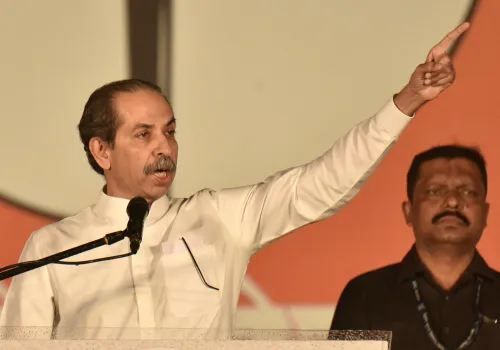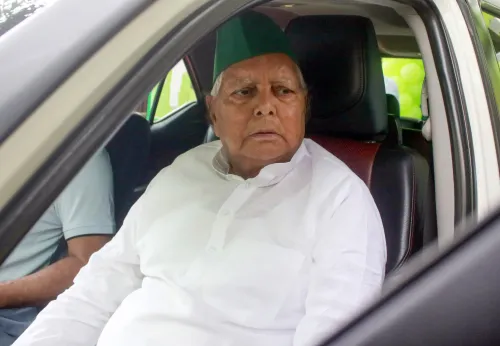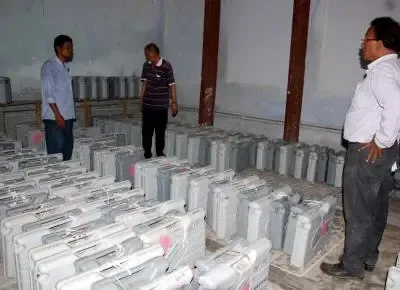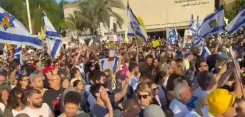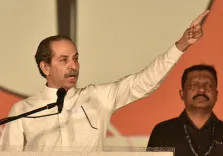Could the Jihadist Conflict in Syria Escalate with Regional Powers Considering Intervention?
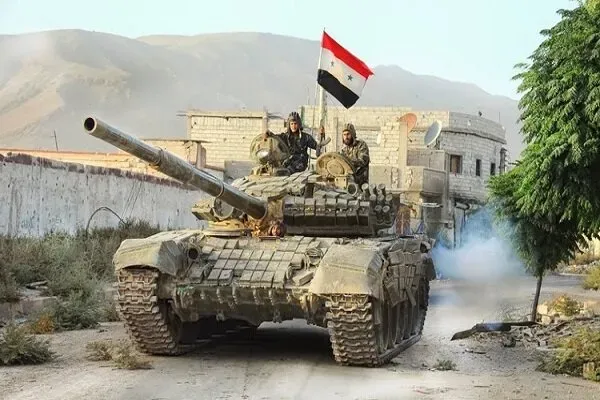
New Delhi, Dec 4 (NationPress) It has been more than a week since jihadist violence reemerged in Syria, and in the midst of confusion surrounding the actual situation on the ground and heated exchanges among superpowers, the conflict seems to be poised for expansion as numerous regional powers, especially allies of President Bashar Al Assad, indicate their readiness to participate.
Iran, which considers Syria its closest Arab ally, has proposed military assistance, including troops, against the Hayat Tahrir al-Shams (HTS) terrorists, formerly known as Jabhat al-Nusra and believed to have links with Al Qaeda. Various Iraqi militias have also shown willingness to support Damascus in combating the jihadists, who have moved from their stronghold in northern Idlib province to capture Aleppo city and push southward.
Russia, which has maintained an expeditionary force in the country for nearly a decade, has already provided air support against HTS terrorists.
Concerning developments include reports that militants, led by Kurdish leaders and allegedly backed by the US, are establishing a new front against the Syrian army in the eastern province of Dayr al-Zawr, amassing their forces in several villages east of the Euphrates.
The US continues to have a military presence in oil-rich areas of eastern Syria and is accused by the Syrian government of backing anti-regime factions.
In this context, an urgent meeting of the UN Security Council convened to address the Syrian situation devolved into expected accusations, with the US and UK blaming Russia and Iran for the current crisis, along with the Assad regime, while Russia retaliated with accusations against the US and its allies, and Iran directly targeting the US and Israel. China subtly criticized the West.
Though UN Special Envoy for Syria Geir Otto Pedersen mentioned that there is no military solution to the ongoing conflict in Syria and cautioned against a potential deepening of the crisis without de-escalation, the possibility of a diplomatic resolution seems bleak as the Security Council remains paralyzed by typical posturing and rhetoric.
The only diplomatic initiative came from Iran, whose Foreign Minister Abbas Araqchi visited Syria and subsequently Turkey, and has indicated plans to travel to Russia as well. Meanwhile, President Masoud Pezeshkian has spoken with Russian President Vladimir Putin, as well as several Arab leaders.
The focus remains on revitalizing the Astana Process, established in 2020 following negotiations that began in Kazakhstan in 2016, aimed at restoring a semblance of peace to war-torn Syria after key stakeholders—the Assad regime, many of its opponents, along with Russia, Turkey, and Iran—reached a truce. This truce is currently in jeopardy due to the HTS advance.
Meanwhile, Turkey's role remains unclear as it has a military presence in Idlib, from which HTS terrorists have launched attacks. While President Recep Tayyip Erdogan has emphasized Turkey's commitment to “Syria's territorial integrity and national unity,” both he and Foreign Minister Hakan Fidan have insisted that recognizing the “legitimate demands” of the Syrian populace and opposition is essential for resolving the conflict.
Nevertheless, the Syrian regime has not blamed Turkey for the recent surge in violence.
While achieving a diplomatic resolution to this prolonged conflict is a lengthy and arduous process—by no means guaranteed—given the multitude of interests involved, the prospects for a military intervention appear more immediate and resonate better with the target audience.
However, the situation in Syria could easily become more complex if Iranian troops and Iraqi forces enter a nation already grappling with Islamist terrorism and hosting Russian, Turkish, and US military personnel, while also bordering Israel. The initial missile strike on Israel by Iran was precipitated by an Israeli attack on an Iranian diplomatic facility in Damascus, followed by the assassination of Hamas leader Ismail Haniyeh in Tehran.
Additionally, the troubled nation of Lebanon, which is already experiencing a fragile ceasefire, is also a neighboring country.
Every ally and adversary is likely to exploit the situation for their own gain, whether it be Iran seeking greater influence, Turkey aiming to reestablish diplomatic ties with Syria, or Russia striving to safeguard its key Middle Eastern ally, while on the other side, Israel aims to weaken Iran and the Resistance Front, and the US seeks to distract Russia as it makes gains against Ukraine and counter Iran.
Overarching all of this is the ongoing violence in Gaza and the impending Presidency of Donald Trump. In a region already fraught with tension, any miscalculation could have serious repercussions.
(Vikas Datta can be contacted at vikas.d.@ians.in)

